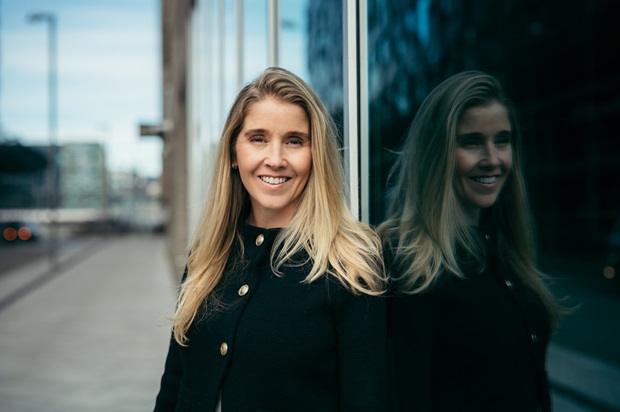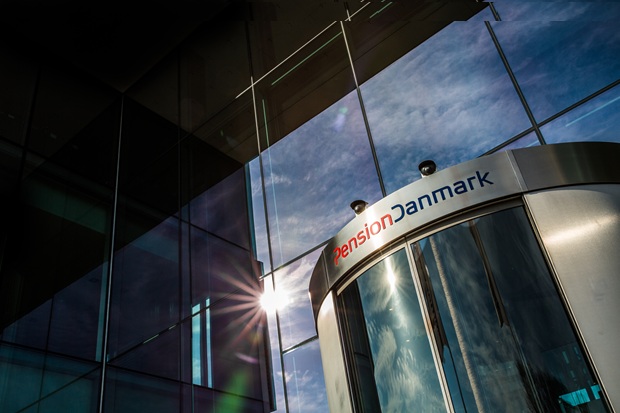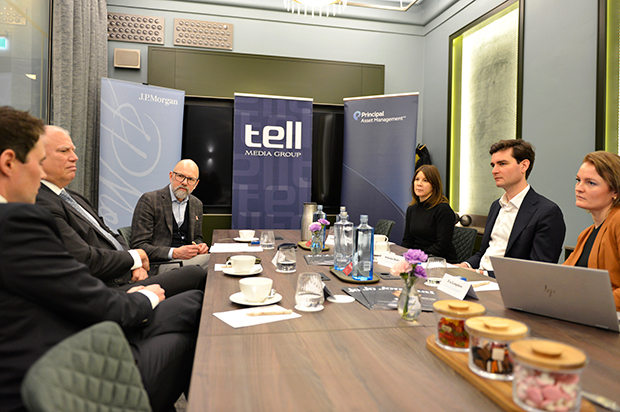
In the spotlight: DNB Livsforsikring’s Anette Hjertø
Anette Hjertø, CEO of DNB Livsforsikring, talks about some the key investment-related issues on her mind at the moment, ESG challenges and some of the main lessons learnt throughout her career.
HOW DID YOU END UP WORKING WITHIN THE ASSET MANAGEMENT INDUSTRY?
After working with accounting during a one-year study break from my studies at Norges Handelshøyskole in Bergen, I learnt that my interests were in finance. I therefore specialised in finance, wrote my thesis on private equity and only applied for jobs in the finance industry. That led to 18 years in asset management until I took the role as the CEO of DNB Livsforsikring last autumn.
WHAT WERE YOU INTERESTED IN AT THE BEGINNING OF YOUR CAREER AND WHAT DID YOU STRUGGLE WITH?
Of learning asset management! I found it highly fascinating and there was so much of the day-to-day processes and assessments that you cannot learn from a book. I was lucky to have good mentors and co-workers to learn from. I specifically remember struggling with my lack of programming skills and I envied my coworkers who were fluent in VBA. A great addition to learning the technical aspects was working in an environment where topics ranging from politics, economic outlook, corporate profitability, societal trends, environmental issues to technical development were assessed as part of the decision process. That’s quite a unique aspect of this industry.
IF YOU DIDN’T WORK IN THE ASSET MANAGEMENT INDUSTRY, WHAT DO YOU THINK YOU WOULD HAVE DONE INSTEAD?
Be the head of a life insurance company, perhaps? Joke aside, I very much like the finance industry and there are plenty of jobs in this industry outside of asset management that I find interesting. The variations of jobs and careers within the broader finance industry have expanded dramatically since I started and I’m happy to see that we now attract young people with far more diverse backgrounds then we did just 10 to 15 years ago.
WHAT IS YOUR LEADERSHIP STYLE AND WHAT DO YOU THINK MAKES A GOOD LEADER?
I find it hard to evaluate myself as a leader as at the end of the day, you’re just a person with your personality traits, skills and experiences. I’ve been told that what my co-workers appreciate in my leadership is that I have a high degree of trust in them and that I hold co-operation as essential in all development and decision-making processes. I also think I will be described as a bit impatient, which I believe is both a good and bad trait for a leader.
WHAT ARE SOME OF THE MAIN LESSONS LEARNT THROUGHOUT YOUR CAREER?
Be kind. Use any possibility you get to learn from the people you meet. Don’t be afraid of asking questions. When you see something that’s hard to understand the logic of, it’s usually because you don’t know the full picture. And in the few cases where you find a solution that others haven’t seen, use your voice.
WHAT ARE THE BEST AND WORST THINGS IN YOUR CURRENT JOB?
The best things in my job are my co-workers and the contributions we make to our customers and to the society. I wonder if I’m a generation too old to be vocal about the wish to have a broader purpose in my work but how we contribute to society is very important to me. The worst part is when we’re failing. There’s always learning to be found from failing but it can be hard to find the motivation when you’re in the middle of it. As a leader you must be very aware of your responsibility to support and motivate, especially in the middle of tough situations.
WHAT ARE SOME OF THE KEY INVESTMENT-RELATED ISSUES ON YOUR MIND AT THE MOMENT?
Higher for longer, soft landing, deglobalisation, AI, economic equality, polarisation, energy transformation, the US election, private versus public markets and valuation. I guess that should sum up a majority of the topics the whole industry is looking at, so not much of a contrarian there.
WHAT DO YOU SEE AS SOME OF THE MAIN ESG CHALLENGES AT THE MOMENT FOR INVESTORS?
That would have to be reliable data combined with knowledge.
WHAT IS THE BIGGEST INVESTMENT MISTAKE YOU HAVE BEEN PART OF MAKING AND WHAT DID YOU LEARN FROM THAT?
When I came back to work after being on maternity leave and still in the “breastfeeding fog”, I sold government bond futures when I was supposed to buy. You learn to accept to make calculated investment mistakes and that the development of your investments might not be as expected but it’s much harder to accept operational errors like my futures bet. I will forever remember the cost of that trading error.
WHAT DO YOU LIKE TO DO WHEN YOU’RE NOT WORKING?
Spend time with friends and family. If I can combine this with a hike in the mountains, that makes for the perfect day.
WHERE WOULD YOU LIVE IF YOU DIDN’T LIVE IN OSLO?
Lofoten, where I come from.
WHICH BOOKS OR PODCASTS WOULD YOU RECOMMEND TO YOUR PEERS?
As a proud Norwegian, this would have to be the last book I read, by the Nobel prize winner Jon Fosse: “Morning and Evening”. About entering and exiting life, and everything in between.
// ANETTE HJERTØ
CEO of DNB Livsforsikring. Before taking on the role in September last year, she was chief investment officer of the pension company for two years. She has previously worked at DNB Asset Management as head of absolute return investments and as a portfolio manager at KLP.
// DNB LIVSFORSIKRING
One of Norways largest life and pension companies with NOK 383 billion (EUR 34 billion) in assets. It has about 1.3 million individuals and 33 000 companies as customers.
This interview was originally published in Nordic Fund Selection Journal, issue 01, 2024.



